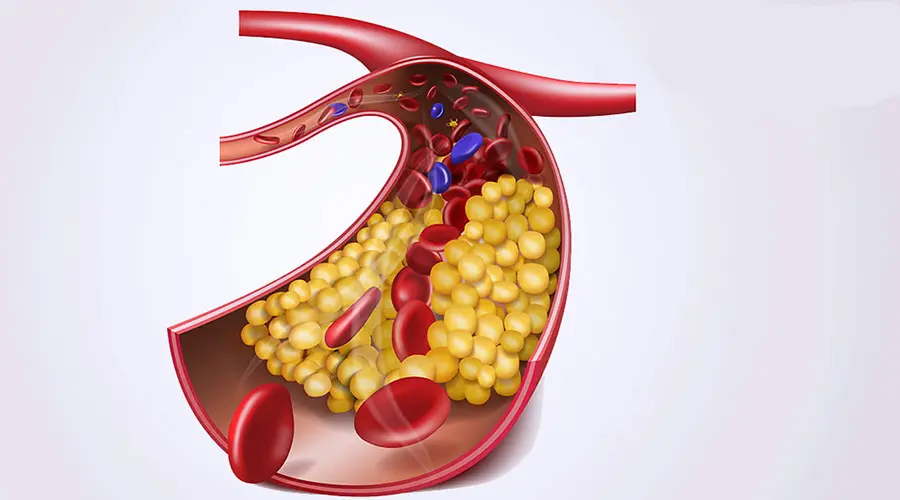High cholesterol is a condition characterised by elevated levels of cholesterol in the blood. Cholesterol is a fatty substance crucial for building cells and certain hormones, but excessive amounts can lead to health problems.
What Is Cholesterol, And Why Is It Important?
Cholesterol is a fatty substance found in your cells and in the food you eat. It plays a crucial role in building cell membranes and producing hormones. While some cholesterol is necessary for your body, having too much, especially the “bad” LDL cholesterol, can lead to plaque buildup in arteries, increasing the risk of heart disease.
What Causes High Cholesterol?
High cholesterol can result from a combination of genetic and lifestyle factors. Common causes include:
- Unhealthy diet
- Lack of physical activity
- Obesity
- Tobacco smoke
- Age
- Familial hypercholesterolemia
- Conditions like diabetes, liver or kidney disease, and hypothyroidism
What Are The Health Risks Associated With High Cholesterol?
High cholesterol is associated with an increased risk of several health issues, including:
- Coronary Artery Disease
- Stroke
- Peripheral Artery Disease (PAD)
- Heart Attack
- Transient Ischemic Attacks (TIAs)
- Chronic Kidney Disease
- Peripheral Vascular Disease
- Aneurysms
- Gallstones
How Is High Cholesterol Diagnosed?
High cholesterol is diagnosed through a blood test known as a lipid panel or lipid profile. The test measures various types of cholesterol and triglycerides in the blood. The key components of a lipid panel include:
High levels of Low-Density Lipoprotein (LDL) Cholesterol or “bad” cholesterol can contribute to plaque buildup in arteries.
Higher levels of High-Density Lipoprotein (HDL) Cholesterol or “good” cholesterol are considered beneficial as HDL helps remove LDL cholesterol from the bloodstream.
Total Cholesterol – The sum of LDL, HDL, and a portion of triglycerides in the blood.
Triglycerides – A type of fat in the blood that, when elevated, can contribute to heart disease.
You may be asked to fast before you blood is taken for your lipid profile.
How Is High Cholesterol Treated And Managed?
High cholesterol is managed through lifestyle changes like a heart-healthy diet, exercise, and maintaining a healthy weight. Depending on your cholesterol level and existing medical conditions, medications such as statins may be prescribed to lower cholesterol levels if lifestyle changes are insufficient. Regular check-ups help monitor progress and allow adjustment to treatment plans. Your cardiovascular risk can also be assessed to prevent serious complications.






